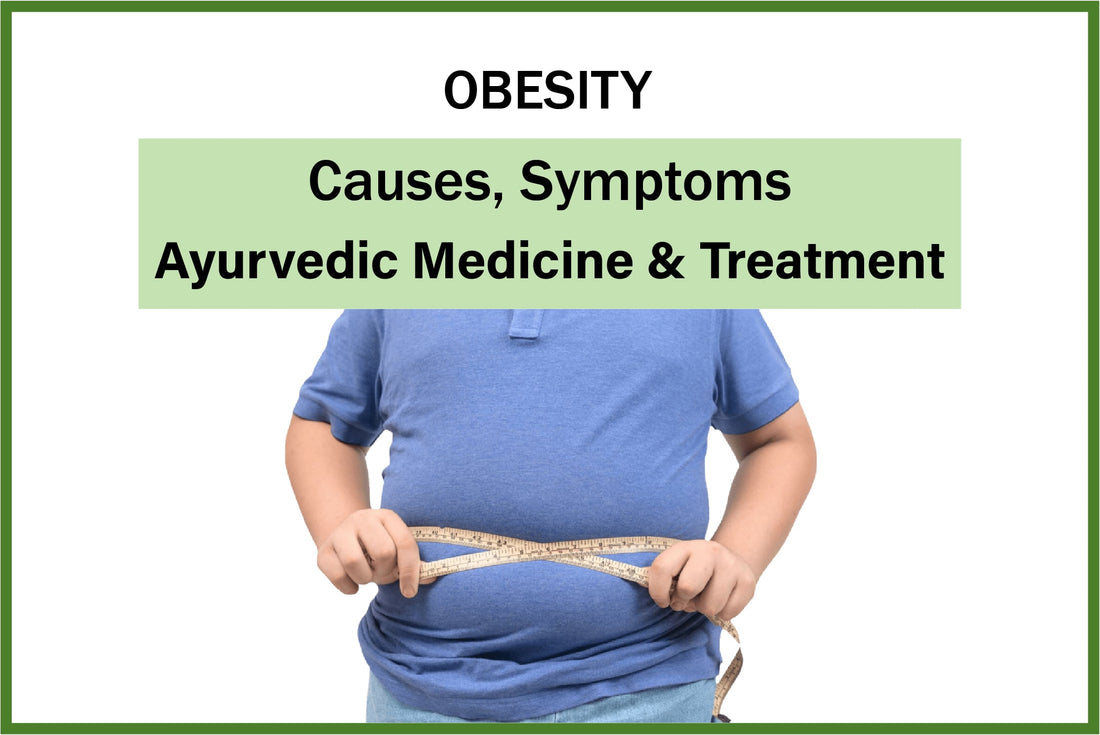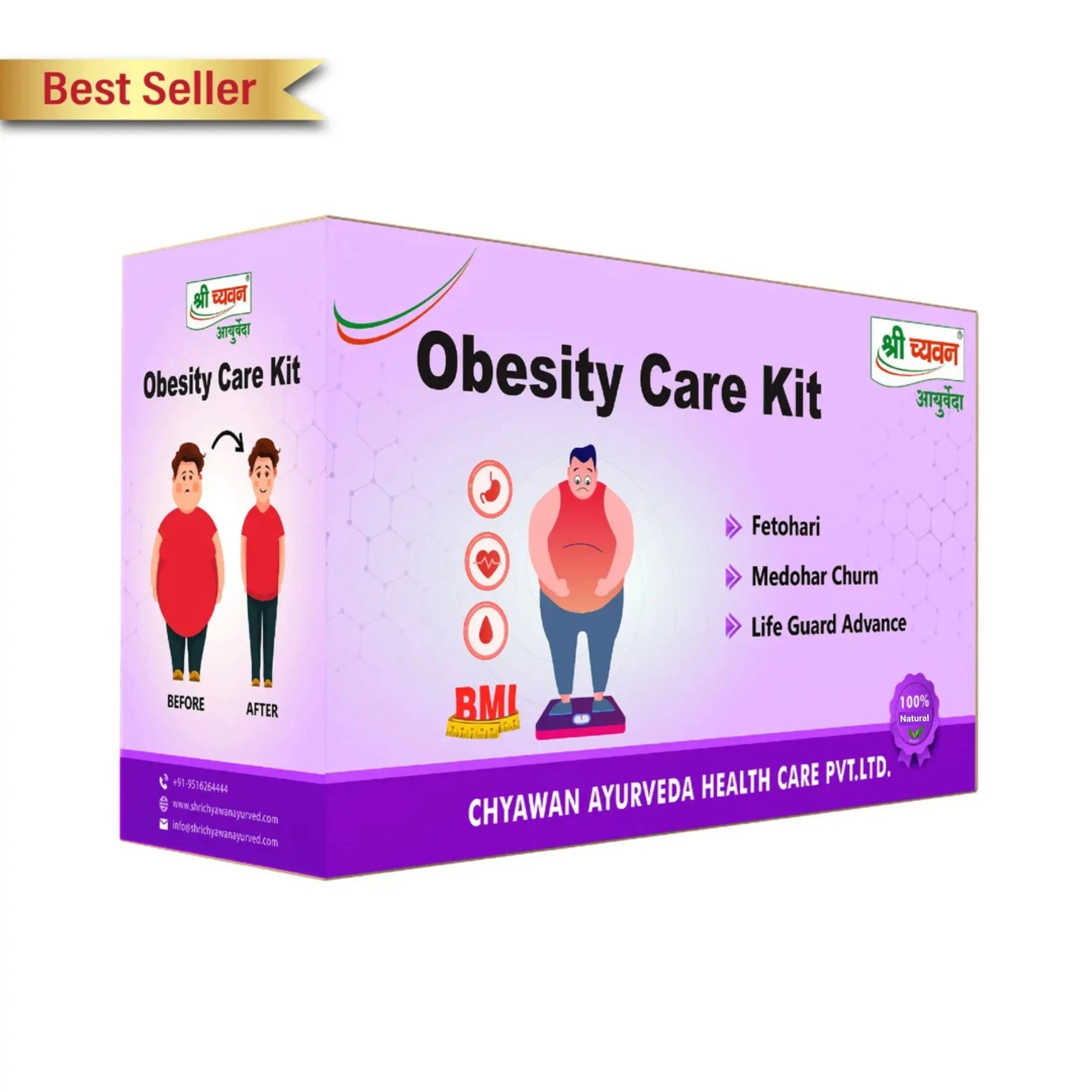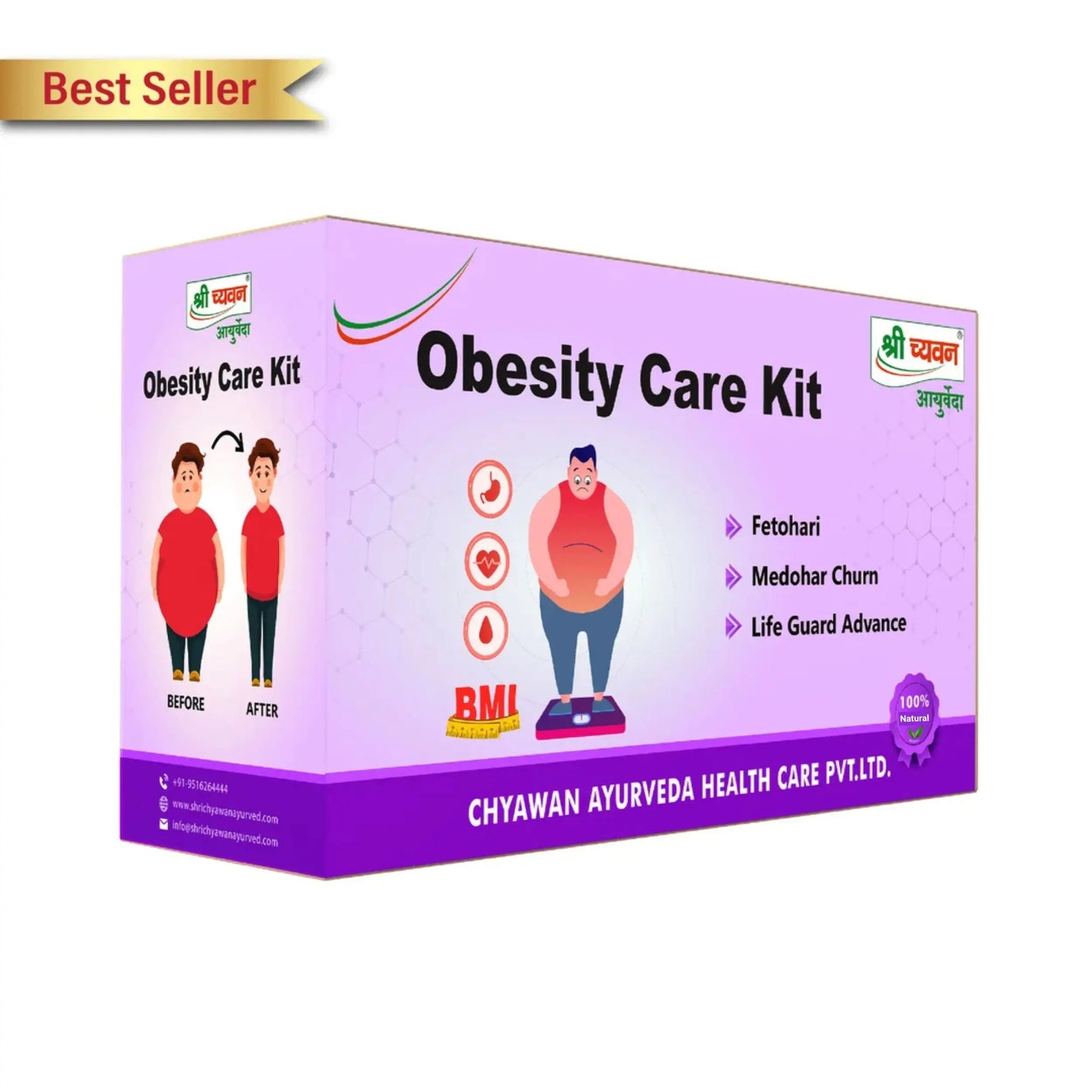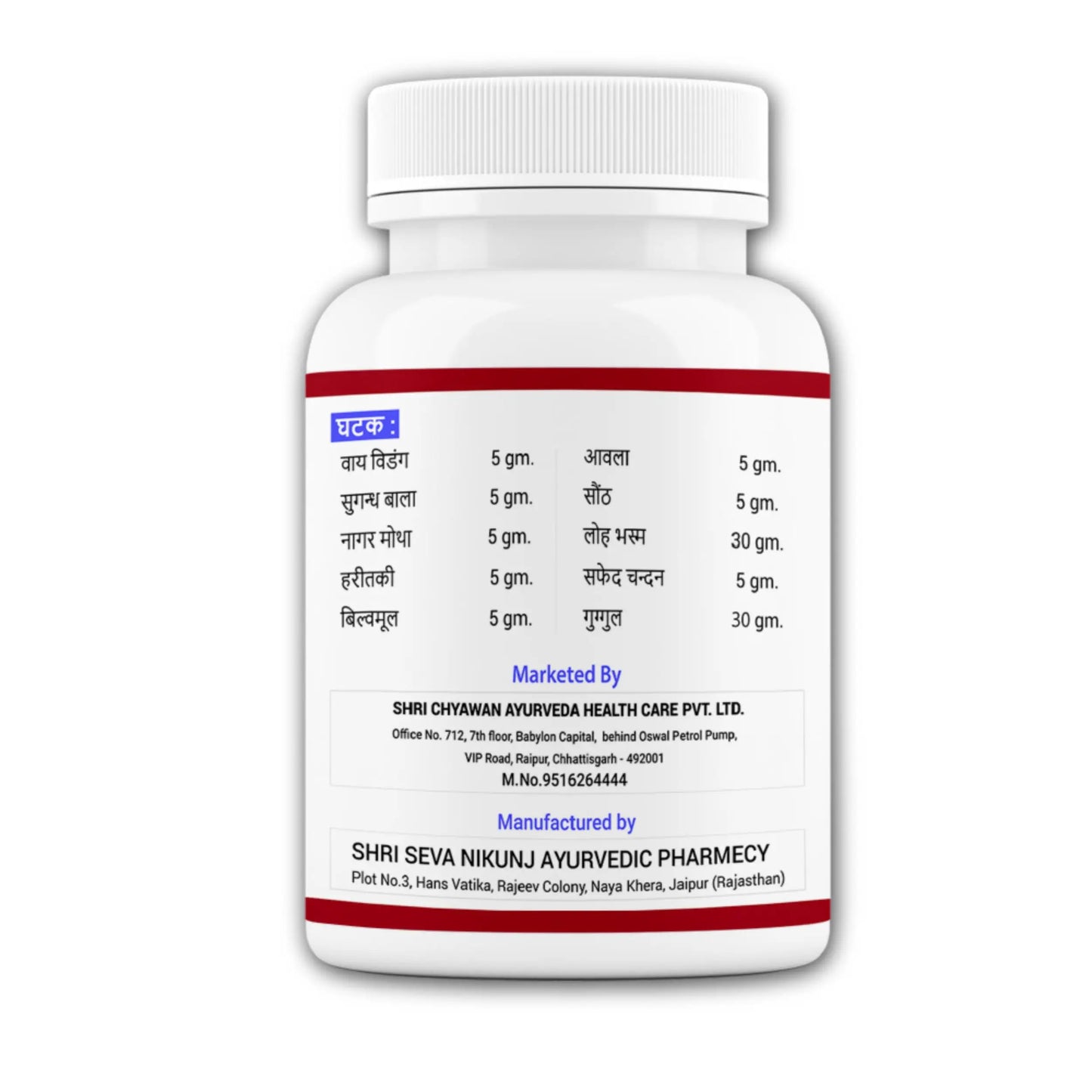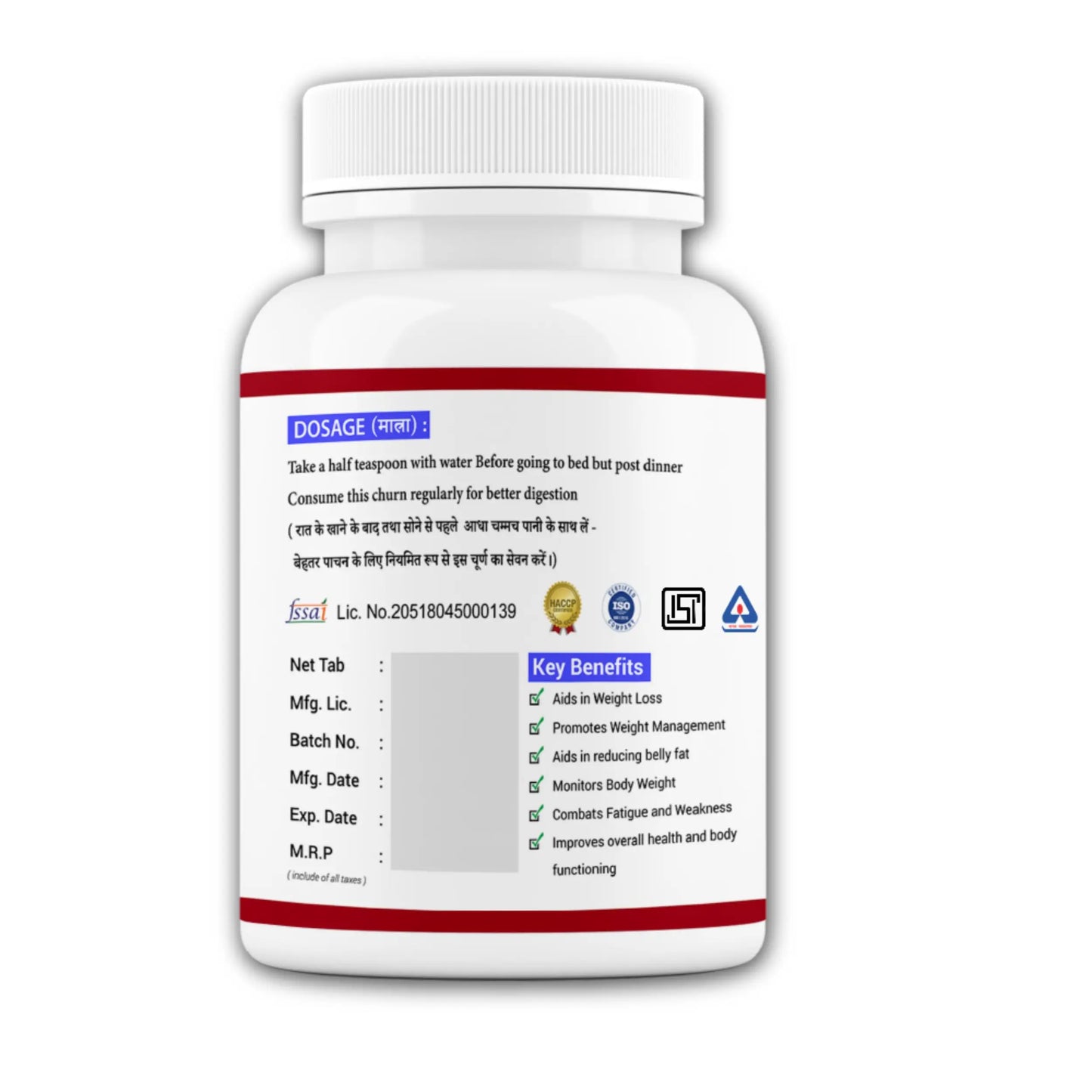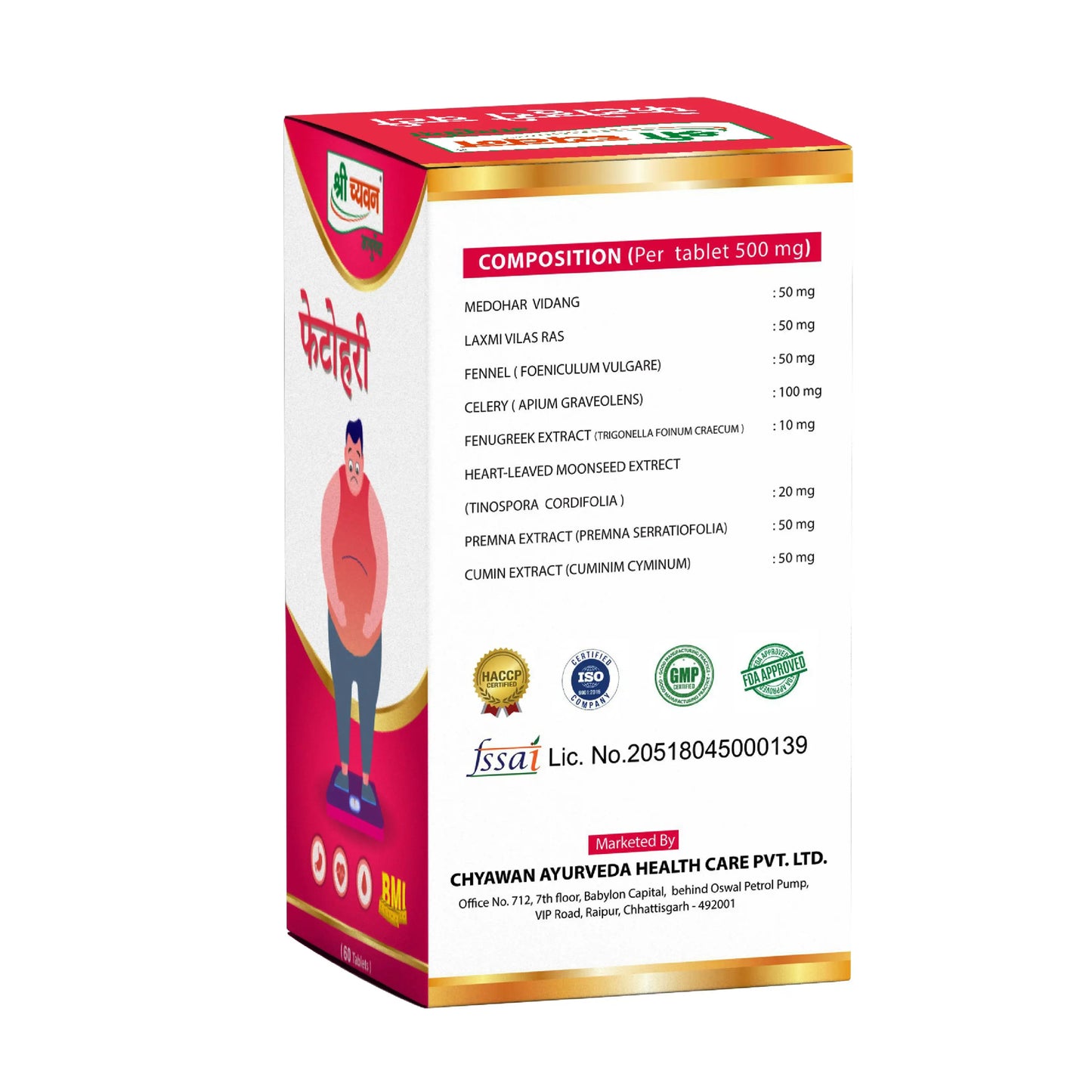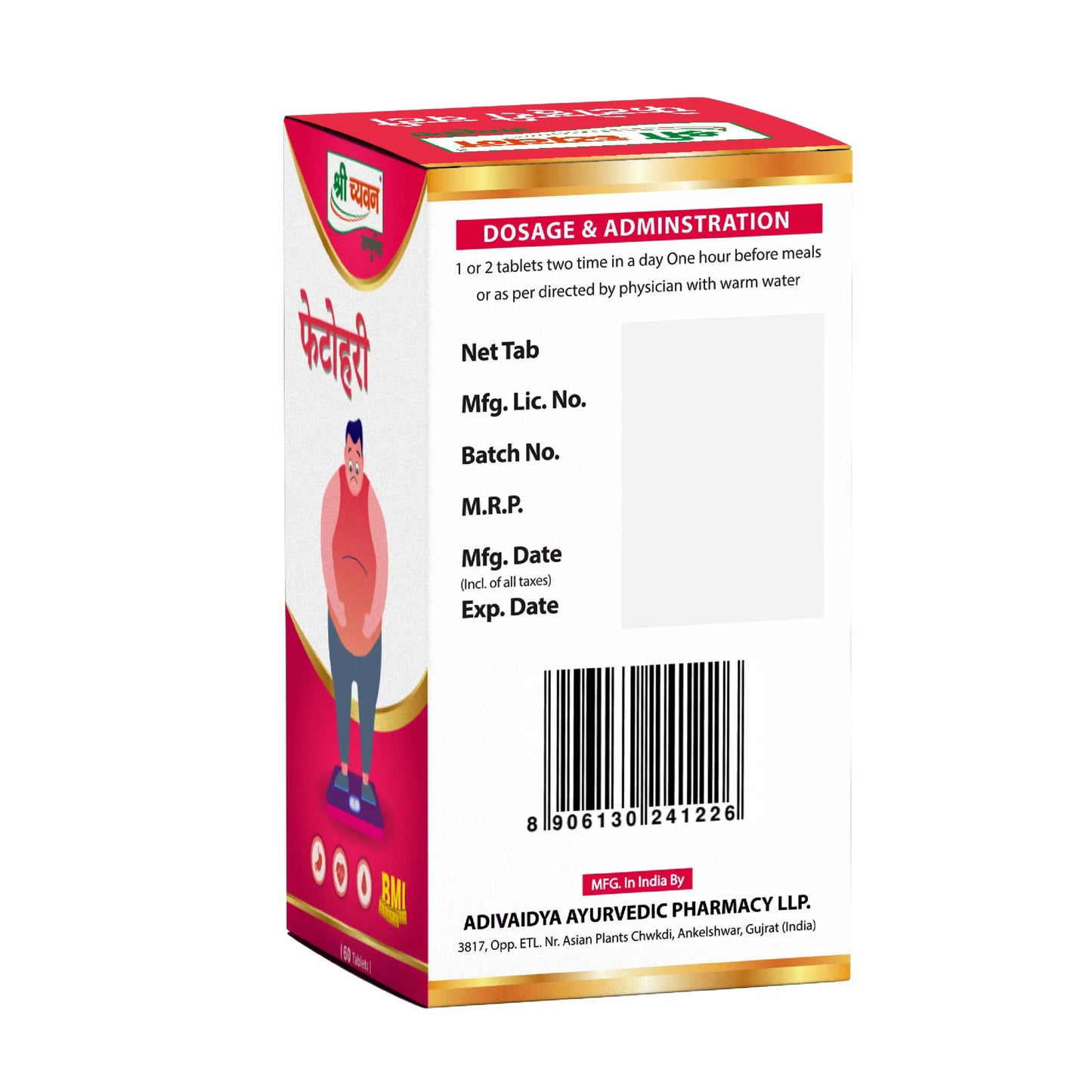What exactly is Obesity in Ayurveda?
In Ayurveda, obesity is referred to as "Medoroga" or "Sthaulya." Ayurveda is a traditional system of medicine that originated in India and focuses on balancing the body's doshas (biological energies) to maintain health and prevent diseases. Obesity in Ayurveda is understood as an imbalance in these doshas, primarily involving Kapha dosha, but it can also involve other doshas like Vata and Pitta.
Kapha Dosha Dominance: Obesity is often attributed to an excess of Kapha dosha, which represents qualities of heaviness, slowness, and accumulation. When Kapha is imbalanced, it leads to the accumulation of excess fat tissues and fluids in the body.
What are the causes of Obesity?
In India, the rate of annual increase of adult obesity is “very high" at 5.2% while the rate of annual increase of child obesity is also “very high" at 9.1%. In Ayurveda, obesity is viewed as a complex condition that can be caused by a combination of factors related to an individual's dosha constitution, dietary habits, lifestyle choices, and emotional well-being. Here, we will explain each of the causes of obesity in detail as per Ayurveda:
- Dietary Habits (Aahara Nidana):
- Excessive Consumption of Heavy and Oily Foods: Overindulgence in foods that are heavy, oily, and high in sweet, sour, and salty tastes can lead to an accumulation of Kapha dosha, which contributes to weight gain.
- Frequent Overeating: Consuming large quantities of food frequently, even when not hungry, can disrupt the digestive fire (Agni) and lead to the accumulation of undigested food particles, known as Ama. Ama can contribute to weight gain.
- Emotional Eating: Using food to cope with emotions such as stress, sadness, or anxiety can lead to overeating, especially of comfort foods that are often rich and calorie-dense.
- Consumption of Cold and Refrigerated Foods: Ayurveda recommends consuming warm, freshly prepared foods. Consuming too many cold or refrigerated foods can weaken the digestive fire and hinder proper digestion.
- Lifestyle Factors (Vihara Nidana):
- Sedentary Lifestyle: Lack of physical activity or a sedentary lifestyle is a significant contributing factor to obesity in Ayurveda. Lack of exercise can lead to the accumulation of Kapha dosha and stagnation of metabolic processes.
- Irregular Eating Patterns: Skipping meals or eating irregularly can disturb the body's natural rhythms and lead to imbalances in doshas, particularly Kapha.
- Sleep Deprivation: Inadequate or poor-quality sleep can disrupt hormonal balances related to appetite regulation and metabolism.
- Excessive Sleep: Paradoxically, oversleeping, especially during the daytime, can also contribute to obesity as it increases Kapha dosha.
- Genetics (Janma Nidana):
- Ayurveda recognizes that an individual's constitution (Prakriti) and genetic factors can play a role in predisposing some people to obesity. Those with a Kapha-dominant constitution may be more susceptible.
- Psychological Factors (Manasika Nidana):
- Stress: Chronic stress can lead to emotional eating and poor dietary choices, which, in turn, can contribute to obesity. Stress also affects hormone levels, potentially leading to weight gain.
- Emotional Imbalances: Conditions like depression and anxiety can influence eating habits and contribute to obesity.
- Low Self-Esteem and Body Image Issues: Negative self-perception and body image issues can lead to emotional eating and weight gain.
- Hormonal Imbalances (Dosha Nidana):
- Imbalances in doshas, particularly Kapha, can affect hormonal regulation and metabolism, contributing to obesity.
- Age (Kala Nidana):
- Ayurveda acknowledges that the body's metabolism naturally slows down with age, making it easier to gain weight if dietary and lifestyle habits are not adjusted accordingly.
- Environmental Factors:
- Climate: Living in cold, damp climates can aggravate Kapha dosha and potentially contribute to obesity.
- Seasonal Factors: Certain seasons, particularly spring and winter, are considered Kapha-aggravating seasons, making individuals more prone to weight gain.
What are the symptoms of Obesity?
Obesity is a condition characterized by excess body fat and can have various physical, psychological, and health-related symptoms. The severity and combination of symptoms can vary from person to person. Here are common symptoms and signs of obesity:
- Increased Body Weight: The most apparent symptom of obesity is a noticeable increase in body weight, often measured using body mass index (BMI) calculations.
- Fatigue and Lack of Energy: Carrying excess weight can make physical activities more challenging, leading to fatigue and a general lack of energy.
- Shortness of Breath: Obesity can lead to difficulty breathing, especially during physical exertion. This is often due to the added pressure on the respiratory system.
- Joint Pain: The extra weight puts increased stress on joints, particularly the knees, hips, and lower back, leading to pain and discomfort.
- Sleep Problems: Obesity is associated with a higher risk of sleep apnea, a condition in which breathing temporarily stops during sleep, leading to disrupted sleep patterns and daytime drowsiness.
- Increased Sweating: Obese individuals may sweat more than those with a healthy weight due to the body's efforts to regulate temperature.
- Skin Issues: Skin problems such as chafing, rashes, and skin infections can occur in skin folds and creases due to friction and moisture build-up.
- Digestive Issues: Gastroesophageal reflux disease (GERD) and heartburn can be more common in individuals with obesity.
- Psychological Symptoms:
- Low Self-Esteem: Obesity can negatively impact self-esteem and body image, leading to emotional distress.
- Depression and Anxiety: The psychological toll of obesity can contribute to mental health conditions like depression and anxiety.
- Social Isolation: Some individuals with obesity may experience social isolation or discrimination, which can further affect mental well-being.
- Menstrual Irregularities: Women with obesity may experience irregular menstrual cycles or other menstrual issues.
- High Blood Pressure (Hypertension): Obesity is a significant risk factor for hypertension, which can lead to various cardiovascular problems.
- High Cholesterol Levels: Obesity is associated with elevated levels of LDL (bad) cholesterol and decreased levels of HDL (good) cholesterol, increasing the risk of heart disease.
- Type 2 Diabetes: Obesity is a major risk factor for the development of type 2 diabetes, characterized by high blood sugar levels.
- Cardiovascular Problems: Obesity increases the risk of heart disease, stroke, and other cardiovascular conditions.
- Respiratory Issues: Obesity can lead to conditions like asthma and obesity hypoventilation syndrome, which affect breathing.
- Liver Disease: Non-alcoholic fatty liver disease (NAFLD) is more common in individuals with obesity.
- Increased Cancer Risk: Obesity is associated with an increased risk of various types of cancer, including breast, colon, and ovarian cancer.
Ayurvedic Medicine for Obesity
Shri Chyawan Ayurveda has formulated an Ayurvedic Medicine for Obesity - Obesity Care Kit which includes:
- FETO HARI VATI- This helps to eliminate excess fat of toxins in the body, also proves beneficial to reduce obesity in one's body. This acts as an excellent ayurvedic fat burner. It is the best ayurvedic weight loss medicine available.
Ingredients: It consists of Medodhar Vidang, Fennel, Celery Fenugreek extract, Cumin extract, Premna extract.
How to use: Twice a day on an empty stomach in the morning and evening.
- MAIDOHAR CHURN -It is beneficial to remove constipation, acidity and gas. This churn is highly effective in weight loss, stubborn fat burn, etc.
Ingredients: It consists of Viding, Haritaki, Bilav mul, Amla, Safed Chandan, Sugandh bala, Nagarmotha, Sauth, Loh Bhasm, Guggul.
How to use: Before going to bed but post dinner - consume this churn for better digestion.
- Life Guard Advance Syrup:Life Guard Advance is a multivitamin syrup, it provides all the necessary vitamins required by our body during pregnancy or anaemia. It helps to boost the immunity power.
Ingredients: It consists of Arjun Chal, Aswagandha, Gokhru, Satvari, Utangan, Shilajeet, Tulsi, Salimpanja, Amla, Harde, Baheda, Suth,Mari, Pipal.
How to Use: Take 10ml of Shri Chyawan's Life Guard Advance syrup after light breakfast.
It's important to note that not all individuals with obesity will experience the same symptoms, and some people may not exhibit any noticeable symptoms until obesity-related health problems develop. Obesity is a complex condition that requires a comprehensive approach to management, including lifestyle modifications, dietary changes, exercise.

